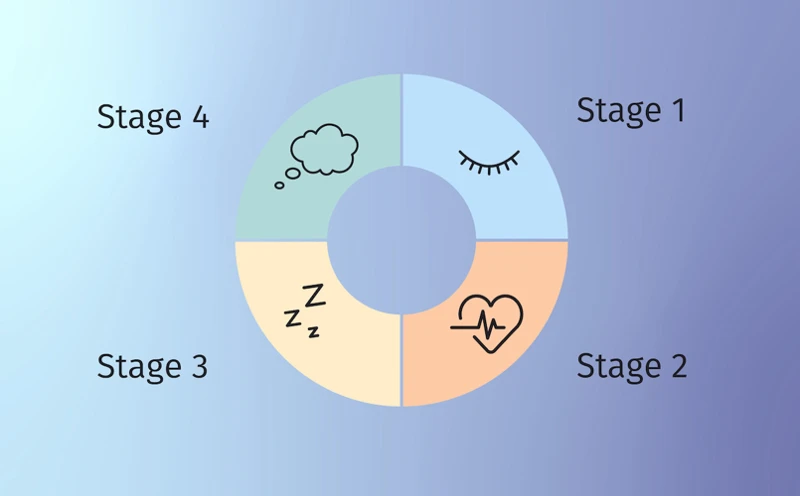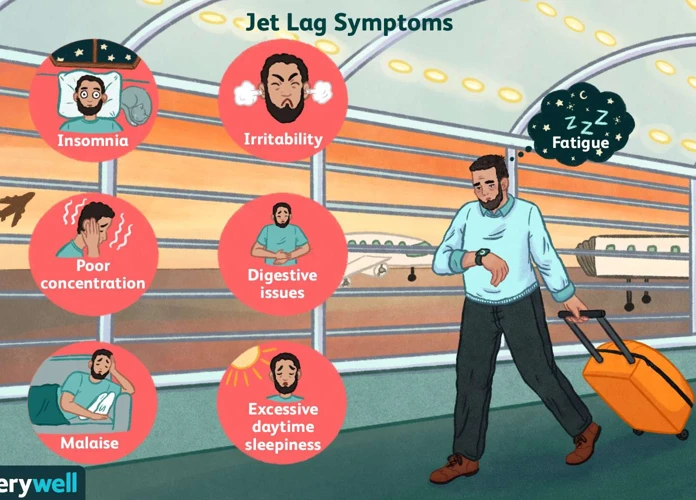Jet lag can be a perplexing and frustrating experience, leaving travelers feeling disoriented and fatigued as they struggle to adjust to a new time zone. Whether you’re crossing multiple time zones for business or embarking on an exciting adventure, understanding the causes, symptoms, and treatment options for jet lag is essential for a smoother travel experience. In this comprehensive guide, we’ll delve into the definition of jet lag and explore its underlying causes, as well as discuss the common symptoms and effects it has on the body. Additionally, we’ll provide practical tips for preventing jet lag and highlight natural remedies and medications that can help alleviate its symptoms. So, get ready to gain a deeper understanding of the challenges and solutions associated with jet lag.
What is Jet Lag?

Jet lag, also known as desynchronosis, is a temporary sleep disorder that occurs when an individual travels across multiple time zones, disrupting their body’s natural circadian rhythm. This disruption can leave travelers feeling disoriented and fatigued as their internal body clock struggles to adjust to the new time zone. The severity and duration of jet lag can vary depending on factors such as the number of time zones crossed, the direction of travel, and each individual’s adaptability. When crossing time zones, our body’s internal clock, located in the suprachiasmatic nucleus of the brain, needs time to synchronize with the external cues of the new location, such as daylight and meal times. This process often takes several days, during which time travelers may experience a range of uncomfortable symptoms. It’s important to note that jet lag not only affects those who travel by plane but can also be experienced by individuals who work night shifts or have irregular sleep patterns. Understanding the causes and symptoms of jet lag is essential in order to effectively manage and minimize its effects on our physical and mental well-being.
Definition of Jet Lag
Jet lag, often referred to as desynchronosis, is a phenomenon that occurs when an individual rapidly moves through different time zones, disrupting their body’s natural circadian rhythm. The term “jet lag” is commonly associated with air travel, as it is a frequent consequence of crossing multiple time zones during long-haul flights. However, it can also affect individuals who work night shifts or have irregular sleep patterns. The main characteristic of jet lag is the mismatch between the internal biological clock and the external environmental cues, such as daylight and meal times, in the new location. This misalignment can result in a range of symptoms, including fatigue, insomnia, daytime sleepiness, decreased concentration, irritability, digestive disturbances, and general malaise. It’s important to note that jet lag is a temporary condition, and the body typically adjusts to the new time zone within a few days. Understanding the definition of jet lag is essential as it provides the foundation for recognizing and addressing the symptoms associated with this phenomenon. By implementing effective strategies like adjusting sleep schedules, staying hydrated, and following specific dietary guidelines, individuals can minimize the impact of jet lag and facilitate quicker recovery. For more information on jet lag prevention tips, check out our helpful guide here.
Causes of Jet Lag
The primary cause of jet lag is the rapid transition across time zones, disrupting the body’s natural internal clock. Here are the key factors contributing to jet lag:
1. Time Zone Discrepancy: Crossing multiple time zones results in a misalignment between the body’s internal circadian rhythm and the external environment. This discrepancy can lead to confusion within the body, affecting sleep-wake cycles, hormone release, and other bodily functions.
2. Disrupted Sleep Patterns: Traveling long distances often involves overnight flights, leading to sleep disturbances. Attempting to sleep when it is daytime in the destination can be challenging for many individuals. The discomfort of sleeping in a confined space and the noise level on airplanes can further disrupt sleep.
3. Dehydration: Air travel can cause dehydration due to the low humidity levels in the cabin. Dehydration can exacerbate the symptoms of jet lag, leaving travelers feeling even more fatigued and disoriented.
4. Cabin Pressure and Oxygen Levels: The reduced cabin pressure and oxygen levels during flights can also contribute to jet lag symptoms. This can lead to feelings of lethargy, headaches, and difficulty concentrating.
5. Disruption of Daily Routine: Jet lag can disrupt daily routines, including meal times, physical activity, and exposure to natural light. This disruption further confuses the body’s internal clock and prolongs the adjustment period.
Understanding the causes of jet lag allows for better preparation and mitigation of its effects. By implementing strategies aimed at minimizing the impact of these causes, such as staying hydrated, adjusting sleep patterns, and following a regular daily routine in the new time zone, travelers can alleviate the symptoms and adjust more effectively. For more detailed tips on preventing jet lag, check out our article on jet lag prevention tips.
Body’s Biological Clock
The body’s biological clock, also known as the circadian rhythm, plays a crucial role in regulating various physiological processes, including sleep-wake cycles, hormone production, and body temperature. This internal clock is primarily governed by the suprachiasmatic nucleus (SCN), a small area in the brain’s hypothalamus. The SCN receives input from light-sensitive cells in the retina, which help synchronize the body’s internal clock with external cues, such as daylight and darkness. These signals inform the body about the time of day, influencing when we feel alert and awake or tired and sleepy. When we travel across time zones, our biological clock becomes out of sync with the new environment, leading to jet lag. The body’s clock needs time to adjust to the new time zone, typically at a rate of about one hour per day. This adjustment process can be disrupted by factors such as irregular sleep patterns, night shifts, or excessive exposure to artificial light at night. By understanding the intricate workings of our body’s biological clock, we can better comprehend how jet lag affects our sleep patterns, alertness, and overall well-being. If you’re interested in learning more about how disrupted sleep patterns can impact your health, you can read our article on coping with shift work and coping with disrupted sleep patterns.
Symptoms of Jet Lag

Symptoms of jet lag can vary from person to person, but they generally include a range of physical and mental disruptions. Some common symptoms of jet lag include fatigue, irritability, difficulty sleeping at night, drowsiness during the day, difficulty concentrating, digestive issues, headache, and changes in appetite. Jet lag can also lead to a feeling of disorientation and confusion, which can be particularly challenging when trying to navigate a new environment. It’s not uncommon for individuals experiencing jet lag to have vivid and sometimes unsettling dreams, a phenomenon known as “jet lag dreams”. These dreams can occur due to the disruption of the body’s natural sleep patterns and the effect of jet lag on the brain. It’s important to note that the severity and duration of these symptoms can vary depending on factors such as the number of time zones crossed and each individual’s ability to adapt to the new environment. Properly managing and minimizing the symptoms of jet lag can help travelers adjust more quickly and enjoy their travel experiences to the fullest.
Common Symptoms
Common symptoms of jet lag can vary from person to person, but they typically include disrupted sleep patterns, fatigue, daytime sleepiness, difficulty concentrating, irritability, gastrointestinal disturbances, such as stomach upset or constipation, and general feelings of discomfort. One of the most noticeable symptoms is fatigue, as the body’s internal clock struggles to adjust to the new time zone. Sleep disturbances, such as insomnia or excessive daytime sleepiness, are also common. Some individuals may experience mood changes, including irritability or mood swings. Gastrointestinal issues, such as indigestion or stomach discomfort, can arise due to changes in meal times and disrupted eating patterns. It’s worth noting that some individuals may also experience vivid and unusual dreams during episodes of jet lag. These dreams, often called “jet lag dreams,” can be vivid and intense, possibly due to the shifts in sleep patterns and the body’s adjustment process. Understanding and recognizing these common symptoms is crucial in order to address and manage jet lag effectively.
Severity of Symptoms
The severity of jet lag symptoms can vary from person to person and depend on several factors such as the individual’s age, health, and overall resilience. Common symptoms of jet lag include fatigue, insomnia or excessive sleepiness, difficulty concentrating, irritability, digestive issues like nausea or diarrhea, headaches, and a general feeling of malaise. These symptoms can range from mild to severe, with some individuals experiencing only minor disruptions in their sleep and energy levels, while others may face more pronounced and debilitating effects. The duration of symptoms also varies, with some people adapting quickly within a day or two, while others may experience jet lag symptoms for several days or even up to a week. It’s important to note that jet lag can not only affect the body but also impact the mind, leading to cognitive impairments and emotional disturbances. For instance, some individuals may experience vivid and intense dreams during their adjustment period, commonly referred to as “jet lag dreams”. While the severity of symptoms may differ, it is crucial to implement strategies to mitigate the impact of jet lag and improve the overall travel experience.
Effects of Jet Lag

The effects of jet lag can have a significant impact on both our physical and mental well-being. When our body’s internal clock is disrupted, it can lead to a variety of symptoms and challenges. Physically, jet lag can cause fatigue, insomnia, headaches, digestive issues, and muscle soreness. These symptoms can make it difficult for individuals to function at their optimal level and can interfere with daily activities and productivity. Mentally, jet lag can result in mood swings, irritability, difficulty concentrating, and even jet lag dreams. These dreams, also known as “circadian rhythm sleep disorders,” can be vivid and disruptive, causing further sleep disturbances and contributing to the overall feeling of disorientation. The severity of these effects can vary from person to person and may be influenced by factors such as age, overall health, and the duration of travel. It’s important to recognize the potential impact of jet lag and take steps to minimize its effects in order to fully enjoy and make the most of our travel experiences.
Physical and Mental Impact
The physical and mental impact of jet lag can be significant, affecting various aspects of our well-being. On a physical level, individuals may experience symptoms such as fatigue, headaches, gastrointestinal disturbances, and muscle soreness. The disruption of our body’s internal clock can also lead to sleep disturbances, including difficulty falling asleep, frequent awakenings during the night, and early morning awakenings. These sleep disturbances can further contribute to feelings of exhaustion and fatigue. Jet lag can also have a direct impact on our mental well-being. Many individuals experience difficulties with concentration, memory, and overall cognitive function during this period of adjustment. It can be challenging to maintain focus and productivity, leading to decreased performance in daily activities. Jet lag can also affect our mood, leading to feelings of irritability, mood swings, and even depression in some cases. It’s important to manage these physical and mental symptoms effectively in order to minimize the impact of jet lag on our overall functioning and quality of life.
Impaired Performance and Concentration
Impaired performance and concentration are common effects of jet lag that can significantly impact an individual’s ability to function optimally. When jet lag sets in, it can be challenging to stay focused and alert, leading to decreased productivity and difficulty completing tasks. Studies have shown that jet lag can impair cognitive functions such as memory, attention, and decision-making skills. This cognitive fog can make it harder to concentrate on work or academic responsibilities, leading to a decrease in overall performance. Jet lag can also affect physical coordination and reaction times, making activities such as driving or operating machinery potentially dangerous.
One contributing factor to impaired performance and concentration during jet lag is disrupted sleep patterns. The body’s internal clock regulates the sleep-wake cycle, and when it’s out of sync with the new time zone, sleep disturbances can occur. These disturbances can result in fragmented or inadequate sleep, leading to feelings of drowsiness and difficulty concentrating during the day. Additionally, the fatigue and exhaustion caused by jet lag can further exacerbate the problem, as mental and physical energy levels are depleted.
It’s important to note that the effects of jet lag on performance and concentration can vary from person to person. Some individuals may be more resistant to its impact, while others may be more greatly affected. Factors such as age, overall health, and individual tolerance levels can all play a role in determining the severity of these symptoms.
To minimize the impact of impaired performance and concentration due to jet lag, it’s crucial to prioritize adequate rest and sleep. Establishing a consistent sleep schedule in the new time zone, practicing relaxation techniques, and creating a sleep-friendly environment can all help improve sleep quality and combat the cognitive effects of jet lag. Additionally, staying hydrated, maintaining a healthy diet, and engaging in light physical activity can also promote alertness and mental sharpness. By implementing these strategies, individuals can mitigate the negative impact of jet lag on their performance and concentration, allowing them to function at their best even in unfamiliar time zones.
Prevention of Jet Lag

When it comes to preventing jet lag, there are several strategies you can employ to minimize its impact on your travel experience. Here are some helpful tips to consider:
1. Adjusting Sleep Schedule: Gradually shift your sleep schedule a few days before your trip to align with the destination’s time zone. This can help your body adjust more smoothly when you arrive.
2. Stay Hydrated: Drink plenty of water before, during, and after your flight to stay hydrated. Avoid excessive alcohol and caffeine consumption, as they can disrupt your sleep patterns and contribute to dehydration.
3. Avoid Heavy Meals: Stick to light and healthy meals leading up to your flight, as heavy meals can make you feel sluggish and worsen jet lag symptoms. Opt for nutritious foods that provide sustained energy.
4. Expose Yourself to Natural Light: Upon arrival at your destination, spend time outdoors during daylight hours to help reset your body’s internal clock. Exposure to natural light can help regulate your sleep-wake cycle.
5. Take Power Naps: If you feel tired during the day, take short power naps to recharge. Limit your naps to 20-30 minutes to avoid disrupting your nighttime sleep.
6. Regulate Sleep Environment: Ensure that your sleep environment is conducive to restful sleep. Use earplugs, eye masks, or white noise machines to block out external disturbances and create a relaxing atmosphere.
7. Stay Active: Engage in light exercise or stretching during your flight and upon arrival to boost circulation and reduce muscle stiffness. This can also help combat the lethargy associated with jet lag.
By incorporating these preventive measures into your travel routine, you can significantly reduce the severity and duration of jet lag symptoms. For more tips on managing sleep-related issues while traveling, you can refer to our article on jet lag dreams.
Tips for Minimizing Jet Lag
When it comes to minimizing jet lag, there are several practical tips that can help you adjust more smoothly to a new time zone. Here are some effective strategies to consider:
1. Adjust sleep schedule: Gradually shift your sleep schedule a few days before your trip to align with the destination’s time zone. This can help ease the transition and minimize the impact of jet lag.
2. Stay hydrated: Drink plenty of water before, during, and after your flight to stay hydrated. Avoid excessive alcohol and caffeine intake, as they can dehydrate your body and worsen the symptoms of jet lag.
3. Expose yourself to sunlight: Spending time outdoors and exposing yourself to natural sunlight can help regulate your body’s internal clock. Aim for some sunlight exposure during the morning or early afternoon of your destination to help reset your sleep-wake cycle.
4. Plan strategically: If possible, choose flights that arrive at your destination during the daytime. This allows you to adjust to the new environment and stay awake until an appropriate local bedtime, making it easier to adapt to the new time zone.
5. Use relaxation techniques: Before and during your flight, practice relaxation techniques such as deep breathing, meditation, or gentle stretching exercises. These can help reduce stress and promote better sleep during your journey.
6. Avoid heavy meals: Opt for light, healthy meals during your journey, especially on long-haul flights. Heavy meals can disrupt digestion and make it harder for your body to adjust to the new time zone.
7. Consider melatonin: Melatonin is a hormone that helps regulate sleep-wake cycles. Consult with a healthcare professional about the appropriate timing and dosage of melatonin supplements to aid in adjusting to a new time zone.
Remember, everyone’s body responds differently to jet lag, so it’s important to experiment and find what works best for you. By implementing these tips, you can minimize the effects of jet lag and make your travel experience more enjoyable.
Adjusting to New Time Zones
Adjusting to new time zones is crucial for minimizing the effects of jet lag. Here are some practical tips to help you adapt to a different time zone more smoothly:
- Gradual Time Adjustment: Start adjusting your sleep schedule a few days before your trip. Gradually shift your bedtime and wake-up time closer to the schedule of your destination, allowing your body to adjust gradually.
- Stay Hydrated: Drinking plenty of water before, during, and after your flight can help combat the dehydration that often accompanies air travel. Avoid excessive alcohol and caffeine consumption, as they can disrupt your sleep patterns.
- Follow Local Time: As soon as you arrive at your destination, adjust your activities and meals to match the local time. This helps your body synchronize with the new time zone more quickly.
- Get Natural Sunlight: Exposure to natural light, especially in the morning, can help reset your internal body clock. Spend time outdoors during daylight hours to signal to your body that it is time to be awake.
- Avoid Napping: Resisting the temptation to take long naps during the day when you arrive can help regulate your sleep-wake cycle. If you need to rest, limit your naps to 20-30 minutes and avoid napping too close to bedtime.
- Consider Melatonin: Melatonin is a hormone that helps regulate sleep-wake cycles. Taking melatonin supplements before bedtime at your destination can assist your body in adjusting to the new time zone. However, consult with a healthcare professional before using any sleep aids.
By implementing these strategies, you can improve your ability to adjust to new time zones and minimize the impact of jet lag on your overall well-being. For more detailed information on preventing jet lag, you can refer to our article on jet lag prevention tips. Remember, everyone’s body reacts differently to time zone changes, so it’s important to find the methods that work best for you.
Treatment Options
When it comes to treating jet lag, there are various options available to help alleviate the symptoms and adjust the body to the new time zone. One approach is to utilize natural remedies. These can include adjusting your sleep schedule a few days before traveling to gradually align it with the destination time zone, exposing yourself to natural light or using light therapy devices to regulate your circadian rhythm, staying hydrated to combat dehydration caused by air travel, and avoiding excessive caffeine and alcohol consumption, which can disrupt sleep patterns. Additionally, engaging in regular exercise and physical activity can promote better sleep and help minimize the effects of jet lag.
For some individuals, natural remedies may not provide sufficient relief, and in such cases, medications for jet lag can be considered. These medications include over-the-counter sleep aids, melatonin supplements, and prescription medications that help regulate sleep patterns. It is important to consult with a healthcare professional before using any medications, as they may have potential side effects or interactions with other medications.
In order to effectively manage jet lag, it’s recommended to combine both natural remedies and medications, if necessary, to find the best approach for each individual. It’s also important to be patient, as it may take a few days for the body to fully adjust to the new time zone. By implementing these treatment options, individuals can minimize the disruptive effects of jet lag and make the most of their travel experience.
Links:
– Jet Lag Prevention Tips
– Jet Lag Dreams
– Coping with Disrupted Sleep Patterns
Natural Remedies
Natural remedies can be a helpful option for managing jet lag symptoms and promoting the body’s adjustment to a new time zone. Here are some effective natural remedies to consider:
1. Adjusting sunlight exposure: Exposing yourself to natural sunlight during the day can help regulate your body’s internal clock. Spend time outside in the sunlight to help reset your circadian rhythm.
2. Melatonin supplements: Melatonin is a hormone that helps regulate sleep-wake cycles. Taking melatonin supplements can aid in adjusting to a new time zone. It’s best to take melatonin a few hours before your desired bedtime in the new time zone.
3. Stay hydrated: Dehydration can exacerbate the symptoms of jet lag. Be sure to drink plenty of water before, during, and after your flight to help your body stay hydrated and reduce fatigue.
4. Avoid excessive caffeine and alcohol: While a cup of coffee or a glass of wine may seem tempting to fight fatigue or help you sleep, both caffeine and alcohol can disrupt your sleep patterns and worsen jet lag symptoms.
5. Get plenty of rest: Make sure to get enough sleep before your journey to minimize the impact of jet lag. Once you arrive at your destination, try to maintain a regular sleep schedule to help your body adjust.
6. Exercise: Engaging in light exercise, such as walking or stretching, can boost your energy levels and help regulate your sleep patterns. Physical activity also promotes better sleep quality.
Remember, natural remedies may work differently for each individual, so it’s important to find what works best for you. It’s always a good idea to consult with a healthcare professional before trying any new remedies or supplements, especially if you have underlying health conditions or are taking medications.
Medications for Jet Lag
Medications can be an option for relieving the symptoms of jet lag in certain cases. However, it’s important to note that medication should always be used under the guidance of a healthcare professional and should not be seen as a standalone solution. While there are no specific medications designed specifically for jet lag, some medications may help address specific symptoms.
1. Melatonin Supplements: Melatonin is a hormone that regulates sleep-wake cycles. Taking melatonin supplements can help reset your internal body clock and improve sleep quality during travel. It is commonly used as a natural remedy for jet lag. However, it’s worth noting that the effectiveness of melatonin supplements varies among individuals, and the ideal dosage and timing may differ as well.
2. Sleeping Pills: Short-term use of sleeping pills may be considered for those who struggle to sleep during travel. These medications can help induce sleep, but they should be used cautiously and under medical supervision due to potential side effects and dependency issues.
3. Stimulants: In some cases, healthcare professionals may prescribe stimulant medications to help combat excessive sleepiness and promote alertness during the day. These medications should be used judiciously, as they may have side effects and can disrupt natural sleep patterns if used incorrectly.
It’s important to consult with a healthcare professional before taking any medication for jet lag, as they can provide personalized advice based on your specific needs and medical history. Additionally, it’s worth noting that medication should be complemented with other strategies, such as adjusting sleep schedules, staying hydrated, and making lifestyle modifications to help minimize the effects of jet lag. Always prioritize maintaining a healthy sleep routine and implementing preventive measures to help mitigate the impact of jet lag.
Conclusion
In conclusion, jet lag is a common phenomenon that affects travelers who cross multiple time zones, disrupting their body’s natural circadian rhythm. The symptoms of jet lag can range from mild to severe, including fatigue, insomnia, irritability, and difficulty concentrating. The effects of jet lag can have a significant impact on both physical and mental well-being, impairing performance and concentration. However, there are steps that can be taken to prevent and minimize the effects of jet lag. By implementing strategies such as adjusting sleep schedules before travel, staying hydrated, and practicing good sleep hygiene, travelers can help their bodies adapt more smoothly to new time zones. Additionally, natural remedies and medications can be used to alleviate symptoms and aid in adjusting to new time zones. Overall, understanding jet lag and utilizing appropriate prevention and treatment options can greatly enhance the travel experience and promote overall well-being. So, whether you’re embarking on a business trip or going on a vacation, take steps to minimize the impact of jet lag and make the most of your time in a new destination.
Frequently Asked Questions
What are the common symptoms of jet lag?
Common symptoms of jet lag may include fatigue, insomnia, irritability, difficulty concentrating, headaches, gastrointestinal discomfort, and a general feeling of malaise.
How long does jet lag typically last?
The duration of jet lag varies from person to person and depends on factors such as the number of time zones crossed and individual adaptability. It can take a few days to adjust fully, but some people may experience lingering symptoms for up to a week.
Can jet lag affect my cognitive function?
Yes, jet lag can impair cognitive function. It may result in difficulties with memory, concentration, and decision-making. These effects are temporary and generally subside as the body adjusts to the new time zone.
Are there any natural remedies that can help alleviate jet lag symptoms?
Yes, there are several natural remedies that may help alleviate jet lag symptoms. These include ensuring proper hydration, maintaining a healthy sleep schedule, getting exposure to natural light, and engaging in regular exercise.
Should I adjust my sleep patterns before traveling to a new time zone?
Adjusting your sleep patterns before traveling can be beneficial in minimizing jet lag symptoms. Gradual changes to your sleep schedule prior to departure can help your body adapt more easily to the new time zone.
Can medications help with jet lag?
There are medications available that may aid in reducing the symptoms of jet lag. These include over-the-counter sleep aids and melatonin supplements. It is advisable to consult with a healthcare professional before using any medications.
Can jet lag affect my appetite?
Yes, jet lag can affect your appetite. It can disrupt your body’s natural hunger cues and lead to appetite changes, including decreased appetite or increased cravings for certain foods.
Is it better to travel eastward or westward to minimize jet lag?
There is no definitive answer to this question as people’s experiences with jet lag can vary. Generally, it is believed that traveling westward may be slightly easier for the body to adjust to, as it extends the day. However, individual factors and preferences should also be taken into consideration.
Can jet lag cause mood swings?
Yes, jet lag can affect your mood and lead to mood swings. Disrupted sleep and changes in your body’s natural rhythm can contribute to feelings of irritability, anxiety, and even depression. These mood swings typically subside as your body adjusts to the new time zone.
Are there any tips for minimizing jet lag?
Yes, there are several tips that can help minimize jet lag. These include staying hydrated, avoiding excessive alcohol and caffeine consumption, adjusting your sleep schedule before traveling, and taking short naps during the day if needed. For more detailed tips, you can check out our article on jet lag prevention.








